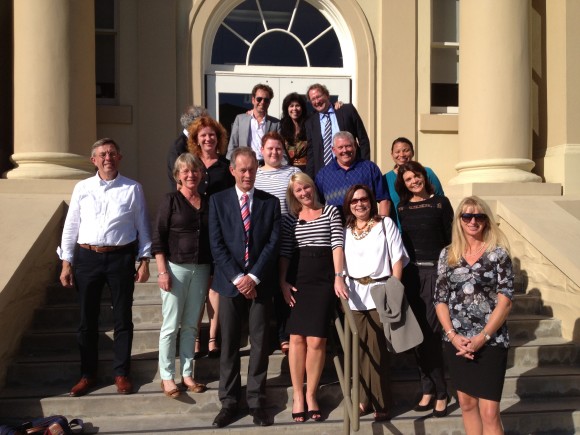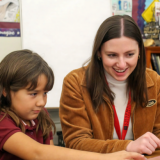Education, a global endeavor!
October 22, 2013
By Marisol Rexach, Ph.D. in Education Student
This past week I had the amazing opportunity to meet other educators who embody a strong commitment to education. These individuals traveled long distances to learn about teaching practices in the United States. With so much talk about ill-prepared students and the ongoing skepticism about teacher effectiveness, it was refreshing to think that other countries may actually believe they might learn from our educational model.

Monday afforded me the privilege of sharing my experiences as a bilingual teacher in the United States. The educators from the Netherlands were curious about our system of education. They appreciated the practical strategies offered and were excited about putting the new information to use in their pre-school classrooms and teacher professional development offerings. Dr. Anaida Colon-Muniz provided a comprehensive look at the political landscape in the United States, and it clearly demonstrated the intersection of politics and schooling practices. The teachers connected with these ideas and shared that the perception of English was a strong motivator for their students. According to the educators, students understood the positive connection between the acquisition of English and their opportunities for higher education.
Wednesday placed me in direct contact with a large group of Chinese educators. They were in the midst of a 2-month visit to learn about United States public schools. As I led a small group of teachers across the high school campus, we chatted about our educational systems. I was intrigued by the idea that teachers were (from what I understand) selected by the government to enter the profession. These teachers stated that, regardless of an individual teacher’s effectiveness, all teachers remain in the profession. However, they further explained a system that promoted ongoing and systematic teacher collaboration. Lesson planning was a group endeavor. They were very intrigued by the concept of teacher mentoring and the formal teacher evaluation process here in the United States. Additionally, as they observed classrooms, they were surprised the students were engaged in learning and that teachers were actively involved in the learning experiences, often interacting amicably with the students. Later, the group explained that classroom management is an area of challenge for them.
Amidst these international exchanges were other noteworthy events. My small group of young students (ages 3 – 13) who attend our Sudanese Saturday school spent their Sunday demonstrating at the federal building in Los Angeles. They hoped to bring awareness of the oppressive Sudanese government and the slaughtering of children that has recently taken place. A few days later, on October 17, the Chilean student protests took place- reminding us that education is not always available to all.
So, in the end it was a thought-provoking week. I noted the incredible value of comparative education. I guess it is an inevitable truth that, while learning about others, we also learn about ourselves.

